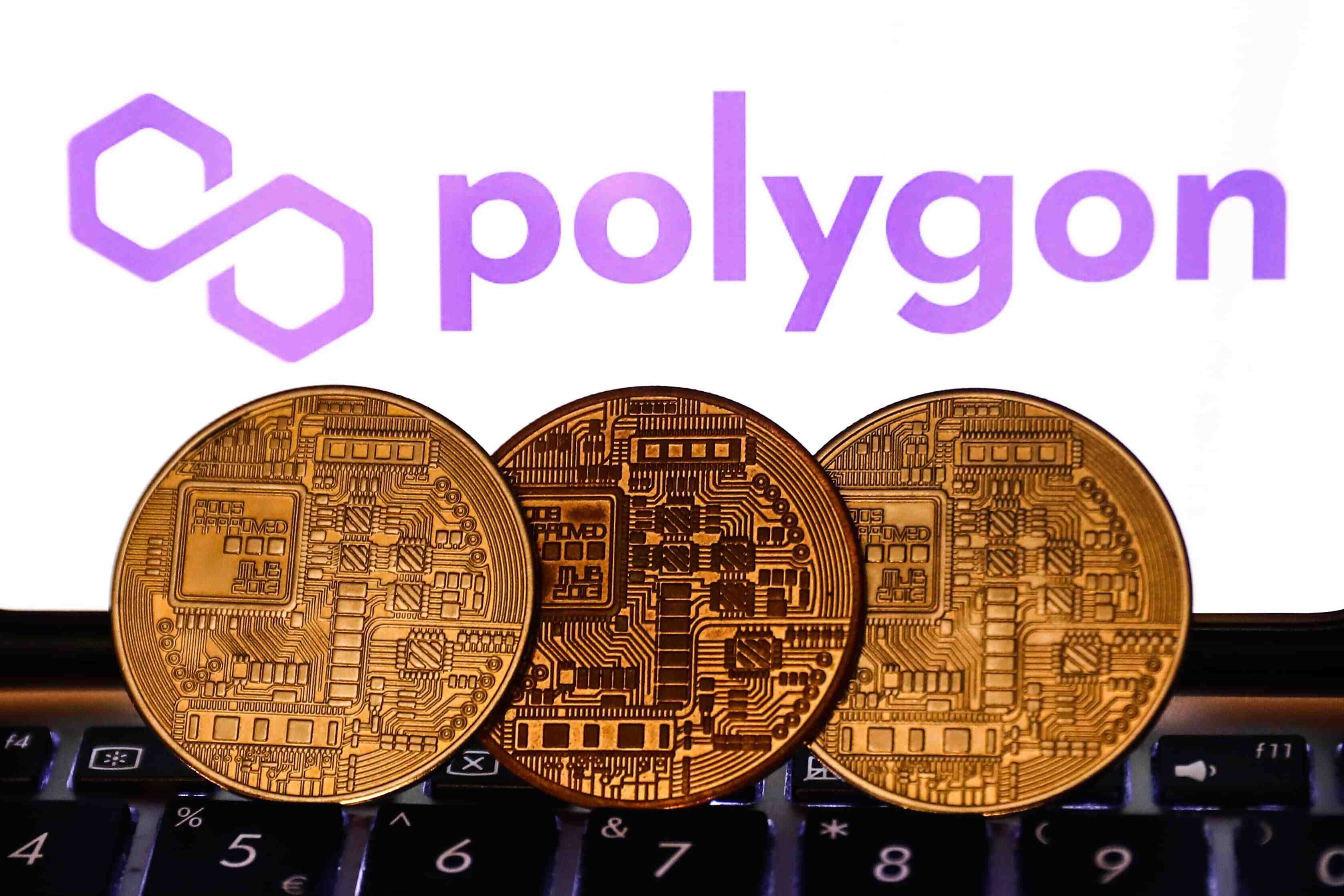Introduction
Welcome to the exciting world of crypto tokens! In recent years, the cryptocurrency market has expanded beyond just Bitcoin and Ethereum, with crypto tokens gaining significant traction. These tokens have become a fundamental component of blockchain technology, offering a variety of innovative applications and functionalities. Understanding what crypto tokens are and how they differ from cryptocurrencies is essential for anyone looking to delve into this intriguing space.
Crypto tokens are digital representations of assets or utilities that exist on a blockchain network. Unlike traditional forms of currency or assets, crypto tokens are entirely digital and rely on blockchain technology for their creation, transfer, and management. They are created as part of Initial Coin Offerings (ICOs) or Token Generation Events (TGEs) and can be used for various purposes, ranging from digital currencies to access rights and even as digital representations of real-world assets.
It is essential to distinguish between crypto tokens and cryptocurrencies. While both fall under the umbrella of digital assets, cryptocurrencies like Bitcoin and Litecoin serve as decentralized mediums of exchange and stores of value. In contrast, crypto tokens have additional functionalities and uses beyond purely being a means of transacting value. Crypto tokens have gained popularity because of their ability to represent ownership of assets, access certain services, or participate in decentralized applications (DApps) and crowdsourcing platforms.
There are several different types of crypto tokens, each with its unique characteristics and use cases. These include utility tokens, security tokens, and asset-backed tokens. Utility tokens provide access to specific services or platforms and can be used for various purposes within the network. Security tokens represent an ownership interest in a company and often follow regulatory guidelines. Asset-backed tokens, on the other hand, are physical assets (such as gold or real estate) tokenized on a blockchain.
The benefits of using crypto tokens are numerous. They offer increased liquidity, enabling fractional ownership and trading of assets that were previously illiquid. Additionally, the use of smart contracts within crypto tokens allows for automatic execution of predefined conditions and removes the need for intermediaries. Crypto tokens also facilitate borderless transactions, providing access to a global marketplace and reducing friction in cross-border transfers.
However, the adoption and use of crypto tokens also come with challenges. Regulatory uncertainty, scalability issues, and security concerns pose significant obstacles to overcome. Governments and regulatory bodies around the world are grappling with how to classify and regulate these new digital assets. Scalability remains a challenge for blockchain networks, as they need to handle a large number of transactions quickly and efficiently. Security threats, such as hacking and theft, create risks for token holders and the overall ecosystem.
Despite these challenges, crypto tokens have found practical application across various industries. They are used in areas such as decentralized finance (DeFi) platforms, digital identity solutions, supply chain management, and even in the world of collectibles and gaming. Crypto tokens offer new opportunities for businesses and individuals, providing them with a more efficient and transparent way to transact and interact with digital assets.
Acquiring and storing crypto tokens can be done through cryptocurrency exchanges and digital wallets. Exchanges offer a platform to buy, sell, and trade tokens, while digital wallets provide secure storage for these digital assets. It is crucial to be mindful of security measures when dealing with crypto tokens and to select reputable and trusted platforms for transactions.
To conclude, crypto tokens are a fascinating addition to the world of digital assets, offering new possibilities for ownership, utility, and financial innovation. As the blockchain industry continues to mature, we can expect crypto tokens to play an increasingly vital role in various sectors of the economy. Whether you’re an investor, entrepreneur, or simply curious about emerging technologies, understanding crypto tokens will undoubtedly prove beneficial in navigating this ever-evolving landscape.
Definition of Crypto Tokens
Crypto tokens are digital representations of assets or utilities that exist on a blockchain network. They are a type of digital asset built on distributed ledger technology, such as Ethereum’s blockchain. Unlike traditional currencies or assets, which are physical or centralized, crypto tokens are entirely digital and exist solely within a decentralized network.
These tokens are created through the process of tokenization, which involves converting real-world assets or concepts into digital representations on a blockchain. This tokenization allows for increased liquidity, divisibility, and programmability compared to traditional assets. Crypto tokens are often used to represent ownership of assets, access certain services, or participate in decentralized applications (DApps).
One of the key features of crypto tokens is their ability to function as a medium of exchange within their respective blockchain ecosystems. They can be used for purchasing goods and services, transferring value, or participating in token-based economies. Transactions involving crypto tokens are recorded on the blockchain and can be verified and traced by anyone with access to the network.
There are different types of crypto tokens, each serving a specific purpose and having its own set of characteristics. Utility tokens are one of the most common types of crypto tokens and are primarily used to access specific services or platforms. These tokens provide their holders with certain rights or privileges within the ecosystem and are often required for participating in the network’s activities.
Security tokens are another type of crypto token that represents an ownership interest in a company or project. These tokens are subject to regulatory compliance and are typically governed by securities laws. Security tokens offer investors the potential for dividends, profit sharing, or voting rights, similar to traditional securities.
Asset-backed tokens are crypto tokens that are pegged to physical or real-world assets, such as gold, real estate, or commodities. These tokens provide fractional ownership of the underlying asset and allow for increased accessibility and liquidity. Asset-backed tokens allow individuals to invest in assets that were traditionally difficult to divide, trade, or access.
Crypto tokens have gained popularity due to the numerous benefits they offer. They provide increased accessibility and inclusivity, as anyone with an internet connection can acquire and hold these tokens. Additionally, crypto tokens enable borderless transactions, eliminating the need for intermediaries and reducing transaction costs. They also provide transparency and immutability, as the transactions and records are stored on a blockchain that is publicly accessible.
Furthermore, the programmability of crypto tokens through smart contracts allows for the automation of transactions and the establishment of predefined conditions. This feature enhances efficiency and reduces the need for manual intervention or third-party intermediaries.
In summary, crypto tokens are digital assets that represent ownership, utility, or access to specific services or assets within a blockchain network. They provide increased liquidity, divisibility, and programmability compared to traditional assets. Crypto tokens have various use cases and can serve as mediums of exchange, ownership interests, or representations of physical assets. As the blockchain industry develops, we can expect the use and adoption of crypto tokens to continue expanding across various sectors of the economy.
How Crypto Tokens Differ from Cryptocurrencies
While crypto tokens and cryptocurrencies both belong to the broader category of digital assets, they have distinct characteristics that set them apart. Understanding the differences between crypto tokens and cryptocurrencies is crucial for navigating the evolving landscape of the blockchain industry.
Cryptocurrencies, such as Bitcoin and Litecoin, serve primarily as decentralized mediums of exchange and stores of value. They are designed to function as standalone currencies and aim to provide an alternative to traditional fiat currencies issued by governments. Cryptocurrencies rely on their own independent blockchain networks to facilitate transactions, verify ownership, and maintain a record of transactions.
On the other hand, crypto tokens are created and operate within existing blockchain networks, such as Ethereum. They rely on the underlying infrastructure and security provided by these networks for their existence and functioning. Crypto tokens, unlike cryptocurrencies, are not standalone currencies but represent digital assets or utilities that are native to a particular blockchain ecosystem.
One key distinction between crypto tokens and cryptocurrencies is their purpose and use case. Cryptocurrencies are primarily designed for transacting value, whether it be for purchasing goods and services or transferring funds. They aim to be a medium of exchange that is decentralized, transparent, and resistant to censorship or control by central entities like banks or governments.
On the other hand, crypto tokens have a broader range of uses beyond being a medium of exchange. They can represent ownership of real-world assets, grant access to specific services or platforms, or serve as utility tokens within decentralized applications (DApps). Crypto tokens enable individuals and organizations to create unique digital assets and ecosystems with programmable properties and functionalities.
Crypto tokens can be integrated into various blockchain-based applications, enabling functionalities such as voting rights, access to services or content, and participation in decentralized finance (DeFi) platforms. They provide a means for developers and entrepreneurs to incentivize user participation, monetize their applications, and create unique value within their respective ecosystems.
Another difference between crypto tokens and cryptocurrencies is their creation process. Cryptocurrencies like Bitcoin are typically generated through mining, which involves solving complex mathematical problems to validate transactions and create new coins. The generation process of cryptocurrencies is often based on a Proof-of-Work (PoW) consensus algorithm.
In contrast, most crypto tokens are created through Token Generation Events (TGEs) or Initial Coin Offerings (ICOs), where developers offer tokens in exchange for funding or contributions. The creation of crypto tokens on existing blockchain networks, such as Ethereum, allows for greater flexibility, faster development, and easier integration within existing blockchain ecosystems.
To summarize, crypto tokens and cryptocurrencies differ in their purpose, use cases, and creation processes. While cryptocurrencies primarily serve as standalone currencies, crypto tokens represent digital assets or utilities within specific blockchain ecosystems. Crypto tokens offer a more diverse range of functionalities and uses beyond being a medium of exchange. By understanding the distinctions between crypto tokens and cryptocurrencies, individuals can better navigate the blockchain industry and explore the opportunities and possibilities presented by each.
Types of Crypto Tokens
Crypto tokens come in various forms, each with its unique characteristics and purposes. Understanding the different types of crypto tokens is essential for grasping the diverse applications within the blockchain ecosystem. Here are the three main types of crypto tokens:
- Utility Tokens: Utility tokens are one of the most common types of crypto tokens. These tokens are designed to provide access to specific services or platforms within a blockchain network. Utility tokens play a crucial role in decentralized applications (DApps) by granting holders certain privileges or rights within the ecosystem. These tokens can be used to pay for transaction fees, access premium features, or participate in voting and governance mechanisms.
- Security Tokens: Security tokens are crypto tokens that represent ownership in an underlying asset, such as a company’s shares, real estate, or a project. Unlike utility tokens, security tokens are subject to securities regulations and follow compliance requirements. Security tokens offer investors the potential for dividends, profit sharing, voting rights, or other financial incentives. These tokens bring the benefits of blockchain technology to traditional securities, making them more accessible, transparent, and liquid.
- Asset-backed Tokens: Asset-backed tokens, also known as tokenized assets, are crypto tokens that are pegged to real-world assets, such as gold, real estate, or commodities. These tokens represent ownership or fractional shares in the underlying physical assets. Asset-backed tokens offer increased liquidity and accessibility to traditionally illiquid assets. They provide individuals with the opportunity to invest in and trade assets that were once difficult to divide, transfer, or access. Asset-backed tokens bring efficiency and transparency to the trading of physical assets, opening up new investment opportunities.
It’s important to note that these categories are not mutually exclusive, and a crypto token can have characteristics of more than one type. For example, a token may serve as both a utility token within a specific blockchain network and also function as a security token by offering ownership rights in a company. The distinction between different types of tokens often depends on the primary function and legal framework within which the token operates.
Moreover, advancements in blockchain technology enable the creation of hybrid tokens that combine characteristics from multiple types. These hybrid tokens offer a broader range of functionalities and can provide greater flexibility for various use cases.
The choice of token type depends on the specific requirements and goals of a project or ecosystem. Utility tokens are commonly used in crowdfunding campaigns and projects seeking to build decentralized applications. Security tokens are applicable in sectors that require regulatory compliance, such as real estate investment or issuing company shares. Asset-backed tokens are ideal for digitizing physical assets and enabling fractional ownership and liquidity.
In summary, the three primary types of crypto tokens are utility tokens, security tokens, and asset-backed tokens. Each type serves a different purpose and caters to specific use cases within the blockchain ecosystem. These tokens have revolutionized traditional finance, enabling unique functionalities, accessibility to assets, and democratized investment opportunities.
Examples of Crypto Tokens
The world of crypto tokens is vast and continually evolving, with numerous tokens serving various purposes within blockchain networks. Here are some notable examples of crypto tokens that showcase the diverse applications within the ecosystem:
- Ethereum (ETH): Ethereum is not just a cryptocurrency; it also serves as a platform for creating and deploying smart contracts and decentralized applications (DApps). The native token of the Ethereum network is called Ether (ETH). Ether functions as a utility token within the Ethereum ecosystem, used for paying transaction fees, as well as participating in decentralized finance (DeFi) applications, staking, and voting on network proposals.
- Binance Coin (BNB): Binance Coin is the native token of the Binance exchange, one of the largest cryptocurrency exchanges in the world. BNB operates as a utility token within the Binance ecosystem, offering various benefits to users. It can be used to pay for transaction fees, participate in token sales on the Binance Launchpad, and access advanced features on the Binance platform.
- Chainlink (LINK): Chainlink is a decentralized oracle network that connects smart contracts on the blockchain with real-world data and external APIs. The Chainlink token (LINK) is used to incentivize and reward the network’s node operators, who provide accurate data and perform various functions within the oracle network. LINK tokens are essential for maintaining the security and integrity of the Chainlink ecosystem.
- Tether (USDT): Tether (USDT) is a stablecoin that aims to maintain a 1:1 ratio with the US dollar. As a stablecoin, USDT offers stability and acts as a convenient medium of exchange within the cryptocurrency ecosystem. USDT is widely used for trading and hedging purposes, providing a link between cryptocurrencies and traditional fiat currencies.
- Uniswap (UNI): Uniswap is a decentralized exchange (DEX) protocol that allows users to trade cryptocurrencies directly from their wallets. The Uniswap token (UNI) serves as a governance token, enabling token holders to participate in protocol governance, voting on proposals, and deciding on the future direction of the platform. UNI holders can also stake their tokens to earn rewards.
These are just a few examples, and many other crypto tokens exist, each with its unique features and purposes. Tokens like Aave (AAVE) in decentralized lending, Compound (COMP) in decentralized finance, and Decentraland (MANA) in virtual reality environments are transforming various industries and pushing the boundaries of what is possible with blockchain technology.
It’s important to research and understand the specific use case, functionality, and risks associated with each crypto token before engaging with them. The crypto token landscape is dynamic, with new tokens constantly being introduced, offering innovative solutions and disrupting traditional industries.
As the blockchain ecosystem continues to evolve, we can expect to see the emergence of more crypto tokens that cater to unique applications, bringing new opportunities, efficiencies, and democratization to finance, governance, and other sectors.
Benefits of Using Crypto Tokens
Crypto tokens offer a range of benefits that make them attractive for individuals, businesses, and developers within the blockchain ecosystem. Here are some key advantages of using crypto tokens:
- Increased Liquidity: Crypto tokens provide increased liquidity compared to traditional assets. Tokenization allows for the fractional ownership of assets, enabling investors to buy and sell smaller portions of an asset. This increased divisibility and liquidity opens up investment opportunities for a wider range of individuals and promotes market efficiency.
- Programmability: Crypto tokens are programmable assets, thanks to the use of smart contracts. Smart contracts allow for the automatic execution of predefined conditions and agreements without the need for intermediaries. This automation enables the creation of complex financial instruments, lending protocols, decentralized exchanges, and other innovative applications that would otherwise be challenging or impossible to implement in traditional financial systems.
- Borderless Transactions: Crypto tokens facilitate borderless transactions without the need for traditional intermediaries, such as banks or payment processors. Cryptocurrency transactions can be conducted between parties anywhere in the world, providing access to a global marketplace and eliminating barriers associated with cross-border transfers. This global accessibility promotes financial inclusivity and reduces transaction costs.
- Transparency and Immutability: Blockchain technology, which underlies crypto tokens, offers transparency and immutability. Transactions involving crypto tokens are recorded on the blockchain, a decentralized and tamper-resistant ledger. This transparency ensures that transaction histories and ownership records can be easily verified and audited by anyone. Immutability protects against fraudulent activities, as once a transaction is recorded, it cannot be altered or reversed.
- Decentralization: Crypto tokens operate within decentralized networks, removing the need for central authorities or intermediaries. This decentralization promotes autonomy, censorship resistance, and eliminates single points of failure. It also empowers individuals to have control over their assets and reduces the risks associated with centralized systems.
- Efficiency and Cost Savings: By utilizing blockchain technology and smart contracts, crypto tokens can streamline processes and reduce inefficiencies. They eliminate the need for manual intervention and paperwork, reducing human errors and the associated costs. Additionally, transactions involving crypto tokens can happen quickly and directly between parties, eliminating delays and reducing transaction fees compared to traditional financial systems.
These benefits make crypto tokens an appealing choice for a wide range of use cases. They are revolutionizing industries such as finance, supply chain management, digital identity, real estate, and more. Crypto tokens provide individuals and businesses with new avenues for transacting, raising funds, and participating in decentralized networks.
It’s important to note that as with any emerging technology, there are also challenges and risks associated with using crypto tokens. These include regulatory uncertainties, scalability issues, security vulnerabilities, and market volatility. However, the potential benefits offered by crypto tokens for increased accessibility, efficiency, and innovation drive the continued adoption and development of this exciting technology.
Challenges of Using Crypto Tokens
While the use of crypto tokens brings numerous benefits, there are also several challenges and obstacles that need to be addressed for widespread adoption and integration. Here are some key challenges associated with using crypto tokens:
- Regulatory Uncertainty: The regulatory landscape for crypto tokens is still evolving, with varying approaches and regulations in different jurisdictions. Unclear or inconsistent regulations pose challenges for businesses and individuals looking to navigate the legal requirements associated with crypto tokens. The lack of regulatory clarity can hinder innovation and introduce compliance risks for token issuers and users.
- Scalability: Blockchain networks, particularly those with high transaction volumes, face scalability challenges. Current blockchain infrastructure can struggle to process a large number of transactions quickly and efficiently. Scalability issues can result in network congestion, delays, and higher fees, limiting the widespread adoption and use of crypto tokens for everyday transactions.
- Security Concerns: While blockchain technology offers enhanced security through decentralized consensus mechanisms, the digital nature of crypto tokens also exposes them to security risks. Hacking attempts, theft, and vulnerabilities in smart contracts can result in the loss of tokens or compromising of funds. Ensuring robust security measures, including secure storage solutions, strong authentication protocols, and regular audits, is crucial to mitigate these risks.
- Market Volatility: Cryptocurrencies and crypto tokens are highly volatile, with price fluctuations that can be significant and sudden. This volatility introduces risks for investors and poses challenges in terms of stability and predictability. Market volatility can make it challenging to use crypto tokens as a medium of exchange or a store of value, limiting their adoption for everyday transactions and mainstream acceptance.
- Interoperability: Interoperability is a challenge in the crypto token space, where different blockchain networks and platforms may have limited compatibility and connectivity. Lack of standardized protocols and seamless integration can impede the transfer and sharing of assets or data across multiple blockchain ecosystems. Efforts are being made to address this challenge through the development of interoperability solutions and cross-chain protocols.
- User Education and Experience: Cryptocurrencies and the underlying blockchain technology can be complex and unfamiliar to many individuals. Lack of awareness and understanding of crypto tokens, how they work, and how to use them effectively can hinder their adoption. Improving user education and creating user-friendly interfaces and experiences are essential for widespread acceptance and usage of crypto tokens.
Addressing these challenges is crucial for the continued growth and maturation of the crypto token ecosystem. Regulatory frameworks need to be developed to provide clarity and consumer protection. Scalability solutions, such as layer 2 protocols and advancements in blockchain technology, are being explored to improve transaction throughput. Enhanced security measures, industry best practices, and user education initiatives are vital to mitigate security risks.
As the blockchain industry continues to evolve, collaborative efforts and technological advancements will contribute to overcoming these challenges and streamlining the adoption and usage of crypto tokens. It is important for stakeholders, including governments, industry players, and users, to actively address these challenges to fully unleash the potential of crypto tokens and reap their benefits.
Common Use Cases for Crypto Tokens
Crypto tokens have found application across various industries and sectors, revolutionizing traditional processes and offering new possibilities. Here are some common use cases for crypto tokens:
- Decentralized Finance (DeFi): One of the most prominent use cases for crypto tokens is within the realm of decentralized finance. Crypto tokens power lending platforms, decentralized exchanges, liquidity protocols, stablecoins, and yield farming initiatives. Through DeFi, individuals can access financial services, such as borrowing and lending, without the need for traditional intermediaries, providing greater financial inclusion and flexibility.
- Digital Identity: Crypto tokens can be used to establish and verify digital identities. Blockchain-based digital identity solutions allow individuals to control their personal information securely. Crypto tokens can serve as digital certificates or credentials, granting individuals access to services or proving their identity without relying on centralized databases. This use case has applications in sectors such as healthcare, voting, and online authentication.
- Supply Chain Management: Blockchain-based supply chain management solutions utilize crypto tokens to bring transparency, traceability, and efficiency to global supply chains. Crypto tokens can be used to represent and track assets, products, or inventory throughout the supply chain, ensuring authenticity and providing a decentralized ledger of transactions. This use case has the potential to reduce fraud, counterfeiting, and inefficiencies in supply chain processes.
- Gaming and Collectibles: Crypto tokens have gained traction in the gaming industry, enabling the creation and trading of in-game assets or virtual goods. Non-Fungible Tokens (NFTs), a specific type of crypto token, have been used for the ownership and transfer of unique digital assets, such as digital art, virtual real estate, and collectibles. Crypto tokens enhance ownership, provenance, and the value of virtual assets, enabling new revenue streams for content creators and gamers.
- Reward Programs and Loyalty Points: Many businesses are exploring the use of crypto tokens as a means to incentivize customer loyalty and engagement. Crypto tokens can replace traditional reward points or loyalty programs, offering increased flexibility, interoperability, and value for consumers. Users can accumulate and redeem tokens for discounts, exclusive perks, or even transfer them to other users, enhancing customer loyalty and engagement.
- Crowdfunding and Token Sales: Crypto tokens have transformed the way projects raise funds and engage with their communities. Initial Coin Offerings (ICOs) and Token Generation Events (TGEs) allow businesses and startups to raise capital by selling their own tokens. Investors purchase these tokens with the expectation of future value appreciation or access to products and services. Crypto tokens enable the democratization of investments and provide individuals with new opportunities for funding and participation.
These use cases are just a glimpse of the vast potential and versatility of crypto tokens. From financial services to digital identity, supply chain management, gaming, and fundraising, crypto tokens offer novel solutions that challenge traditional practices and promote innovation.
As the technology evolves and more industries recognize the benefits of blockchain and crypto tokens, we can expect to see their applications expand even further, creating new opportunities and disrupting existing paradigms in various sectors.
How to Acquire and Store Crypto Tokens
Acquiring and storing crypto tokens requires a basic understanding of the process and a commitment to security measures. Here are the steps to acquire and securely store crypto tokens:
- Choose a Cryptocurrency Exchange: To acquire crypto tokens, you need to choose a reputable cryptocurrency exchange. Research different exchanges to find one that supports the tokens you’re interested in and has a good reputation for security and user experience. Popular exchanges include Binance, Coinbase, Kraken, and Gemini.
- Create an Account: Sign up for an account on the chosen exchange by providing the necessary personal information and completing any required verification processes. This typically involves providing identification documentation and proof of address.
- Deposit Funds: Once your account is set up, deposit funds into the exchange. This could be fiat currency (such as USD or EUR) or other cryptocurrencies, depending on the exchange’s supported trading pairs. Follow the instructions on the exchange to deposit funds securely.
- Trade or Purchase Crypto Tokens: With funds in your exchange account, you can now trade or purchase the desired crypto tokens. Browse the available trading pairs and select the tokens you wish to acquire. Execute the trade or purchase according to the exchange’s interface and current market conditions.
- Set Up a Crypto Wallet: After acquiring crypto tokens, it’s essential to store them securely in a crypto wallet. There are several types of wallets available, including hardware wallets, software wallets, and web-based wallets. Hardware wallets, like Ledger and Trezor, are considered the most secure option as they store your private keys offline.
- Transfer Tokens to Your Wallet: To transfer your newly acquired crypto tokens to your wallet, find the wallet address associated with the specific token within your wallet interface. On the exchange, initiate a withdrawal and provide the wallet address. Confirm the withdrawal and wait for the tokens to be transferred to your wallet. Be careful to enter the correct address to avoid any loss of tokens.
- Maintain Security: Ensure you maintain the security of your crypto tokens by following best practices. Use strong, unique passwords for all accounts associated with your tokens and enable two-factor authentication (2FA) for added security. Regularly update your wallet software and firmware, and keep your private keys offline and secure, away from prying eyes.
- Backup Your Wallet: It’s crucial to create a backup of your wallet information in case of hardware failure or loss. Backup options vary depending on the type of wallet you’re using. For hardware wallets, follow the manufacturer’s instructions for creating a backup. For software wallets, store the backup phrase or private keys securely offline.
Remember that the security and custody of your crypto tokens are your responsibility. Be cautious of phishing attempts, scams, and suspicious websites or applications. Stay informed about the latest security practices and updates in the crypto industry to protect your tokens and personal information.
Lastly, regularly monitor the performance and market conditions of the crypto tokens in your possession. Crypto markets can be volatile, so it’s important to stay informed and make informed decisions when it comes to managing and trading your crypto tokens.
Conclusion
Crypto tokens have emerged as a powerful and transformative force within the blockchain ecosystem. These digital assets offer unique functionalities and opportunities that challenge traditional systems and open doors to innovation across industries. Understanding what crypto tokens are and their various use cases is essential for individuals, businesses, and developers looking to harness the potential of this technology.
From utility tokens to security tokens and asset-backed tokens, each type of crypto token serves a specific purpose and brings its own set of advantages. Utility tokens enable access to services, security tokens represent ownership, and asset-backed tokens tokenize real-world assets. These tokens enhance liquidity, enable automation through smart contracts, and facilitate borderless transactions, promoting a more efficient and inclusive financial landscape.
While there are benefits to using crypto tokens, such as increased liquidity and transparency, challenges persist. Regulatory uncertainty, scalability issues, security vulnerabilities, and market volatility are factors that need to be addressed for wider adoption and integration. Collaborative efforts from governments, industry players, and users are crucial to overcome these challenges and foster a thriving crypto token ecosystem.
To acquire and store crypto tokens securely, individuals need to choose reputable cryptocurrency exchanges, set up crypto wallets, and follow best practices for security and privacy. It’s important to stay informed about the latest developments, security measures, and market conditions to make informed decisions regarding crypto tokens.
As the blockchain industry continues to evolve and mature, the applications and impact of crypto tokens are likely to expand. These tokens have the potential to revolutionize finance, supply chain management, identity verification, gaming, and more. It is an exciting time to explore and participate in the world of crypto tokens, as they continue to shape the future of digital assets and redefine the way we transact, interact, and exchange value.

























